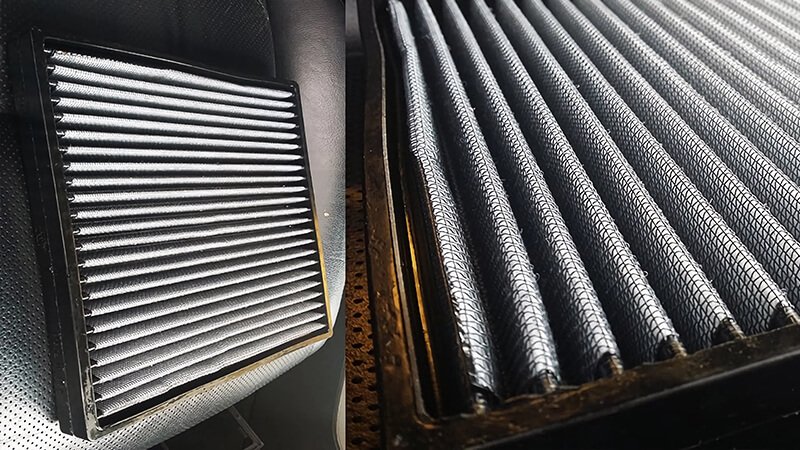When your engine starts making odd noises after a routine air filter swap, it can feel alarming. You expect better performance—not mysterious sounds. But the culprit isn’t always the part—it’s often how it’s fitted.
A new air filter can cause unusual engine noise if it’s installed incorrectly, seated loosely, or if the material design changes airflow. Runex Auto filters are engineered to avoid these issues through precision fit, balanced filtration layers, and robust housing.
Sometimes, it’s not what you install—it’s how. Let’s look at how air filters, especially the ones from Runex Auto, interact with your engine’s sound, and how to get the quiet ride you expect.
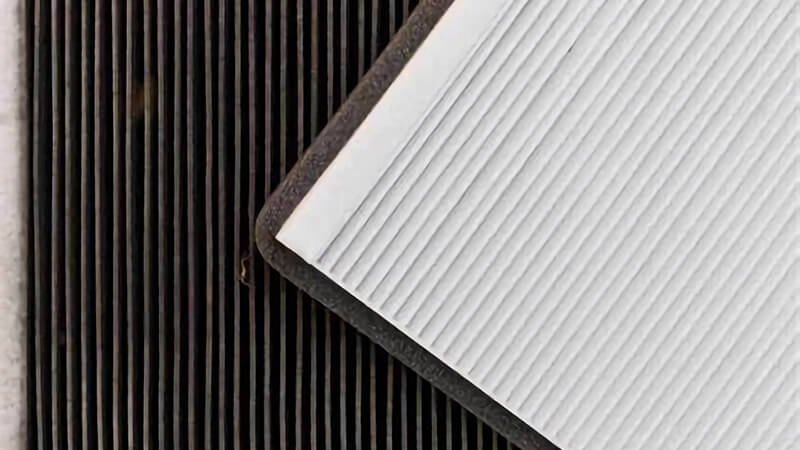
Why does my car air filter make noise after changing?
You swap out the old, dusty air filter for a clean new one—only to hear a high-pitched whistle, or a hum you’ve never noticed before. It’s frustrating. This simple maintenance task suddenly feels like it’s gone wrong.
Air filter noise usually comes from poor fit, misalignment, or incompatible filter dimensions. Even a small air gap can disrupt the intake system and cause whistling or humming.
How Improper Fit Creates Air Leaks
When an air filter1 isn’t properly seated in the housing, it creates minor gaps. These small openings allow unregulated air to bypass the filter and rush into the intake system. This airflow turbulence often results in a whistling sound, especially at higher RPMs. I once helped a client whose car sounded like a tea kettle after an air filter change—the filter wasn’t clipped evenly on one side.
Why Runex Air Filters Reduce This Risk
| Feature | Impact on Noise | How Runex Solves It |
|---|---|---|
| Precision-molded rubber seal | Prevents air gaps2 | Each Runex filter edge is CNC-molded for tight fit |
| Structural stiffness | Reduces vibration | Multi-layer mesh and frame prevent flexing at high airflow |
| OEM-specific dimensions | Stops misfit | Every Runex filter is engineered to exact factory spec |
In short, noise after an air filter change is usually mechanical—not material. That’s why Runex Auto engineers our filters to remove installation guesswork.
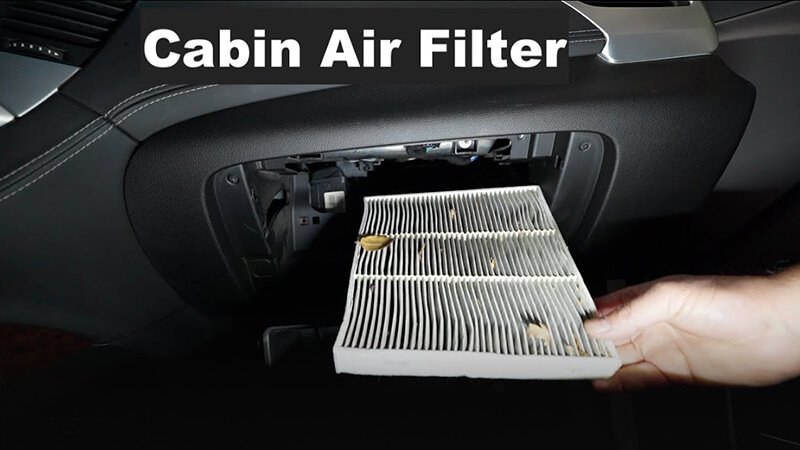
Can an air filter cause engine noise?
It sounds unlikely—a soft, paper-like filter causing mechanical engine noise? But it happens more often than you'd expect. Especially when the filter doesn’t match your vehicle’s airflow dynamics.
Yes, the wrong type or design of air filter can introduce resonance, whistling, or intake growl. Filters affect how air enters the engine, and any disruption in flow can amplify engine acoustics.
How Design Affects Airflow Sound
There are two types of filter sound changes: passive and active. Passive ones come from improper seal or backward installation. Active ones result from changes in filter media or surface area that shift how air resonates in the intake pipe.
- Thinner media3 can whistle under strong suction.
- Pleat depth variation4 alters airflow path, which can change the sound pitch.
- Plastic frame design can rattle if not stable under vibration.
One client who used a generic replacement filter heard a deep growl during acceleration. Turned out, the plastic frame vibrated under pressure. We switched it to a Runex filter with reinforced frame ribs—and the growl was gone.
Why Runex Filters Prevent Acoustic Distortion
Runex filters5 use a multi-layered synthetic fiber mix that balances airflow with sound dampening. Our pleats are formed under calibrated pressure to prevent uneven channels. The mesh layer reduces intake flutter, and our rubber seal keeps airflow focused. This means smoother engine acoustics, especially on vehicles with sensitive mass airflow sensors.

Does changing the air filter change car sound?
You expect performance, not percussion. But the truth is, an air filter swap can sometimes make your car sound very different—louder intake, more hiss under acceleration, or even strange droning at idle.
Changing your air filter can alter your car’s sound, especially if the new filter has different flow resistance, thickness, or fitment. It’s not always bad—but it should never sound like something’s wrong.
Factors That Change Sound After Filter Replacement
- Higher airflow = louder intake sound6: Some filters flow more air than OEM versions, increasing suction noise.
- Poor sealing = whistling or howling7: Even a 2mm gap creates audible whistle at 2500+ RPM.
- Filter material = tonal shift8: Foam filters sound different than paper or synthetic fiber.
I once had a customer who thought his car suddenly had a “performance intake” sound after replacing the filter. Turned out, his new filter used a less dense material, causing more airflow and louder induction. It wasn’t a defect—but it wasn’t what he wanted either.
Runex Filters Maintain Balanced Acoustics
We don’t believe performance should mean louder. Runex uses a synthetic microfiber that maintains OEM airflow resistance, keeping the intake tone stable. Our filters are engineered to maintain a neutral sound profile, so your car runs quiet—unless you want it loud.
| Filter Type | Airflow Gain | Noise Level |
|---|---|---|
| Runex OEM-style | Neutral | Very low |
| Foam aftermarket | High | Loud |
| Cotton gauze | High | Medium |
| Generic paper | Low | Variable (depends on fit) |
Runex filters are the choice when you want quiet reliability, not sound experiments.
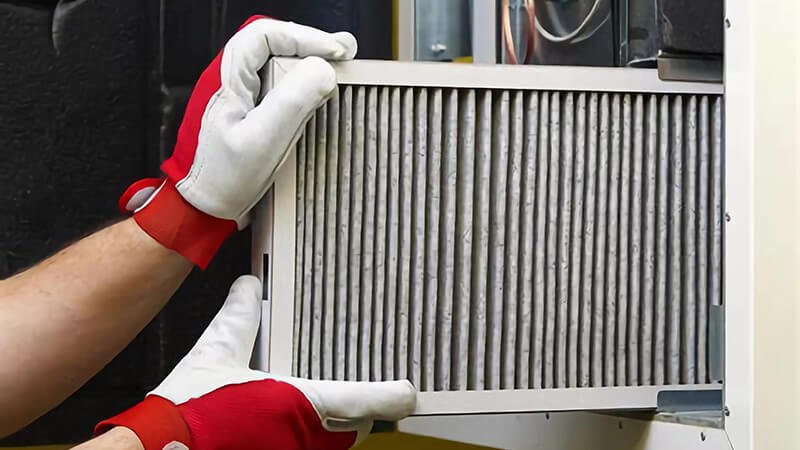
How do I stop an air filter from making noise?
So your filter is making noise. It’s seated. It’s clean. But something still sounds off. Don’t panic—noise can often be fixed without replacing the part.
To stop your air filter from making noise, check fitment, reverse airflow direction, inspect for leaks, and make sure the housing is secure. Reinstalling with a Runex-compatible seal often solves the issue.
Troubleshooting Checklist for Filter Noise
Let’s break it down step by step:
Step 1: Reseat the Filter
Even if the filter looks aligned, remove it and reinsert it carefully. Ensure clips or latches fully engage. On several occasions, I’ve solved noise issues by simply repositioning the filter to ensure zero play in the housing.
Step 2: Check Direction
Some filters are directional—installed backward, they restrict airflow and cause suction noise. Always check the arrows on the filter. A customer once complained about roaring sound—he had installed the filter upside down. Once we flipped it, the noise vanished.
Step 3: Inspect Housing Gasket
Cracked or worn-out gaskets around the filter box can cause air leaks9. Runex filters10 are compatible with OEM boxes and often seal better due to their molded edge.
Step 4: Examine Air Ducts
Loose intake ducts after the airbox can resonate at certain RPMs. Make sure the clamps and hoses are tight.
| Issue | Symptom | Fix |
|---|---|---|
| Poor seal | Whistle on acceleration | Reseat filter, replace gasket |
| Wrong direction | Loud intake sound | Flip filter |
| Loose airbox | Rattle at idle | Secure latches or screws |
| Damaged duct | Growl or hum | Replace or reseal pipe |
In most cases, a proper fit with a quality filter like Runex solves the problem. If the noise continues, consult your mechanic—but chances are, it’s not the filter’s fault.
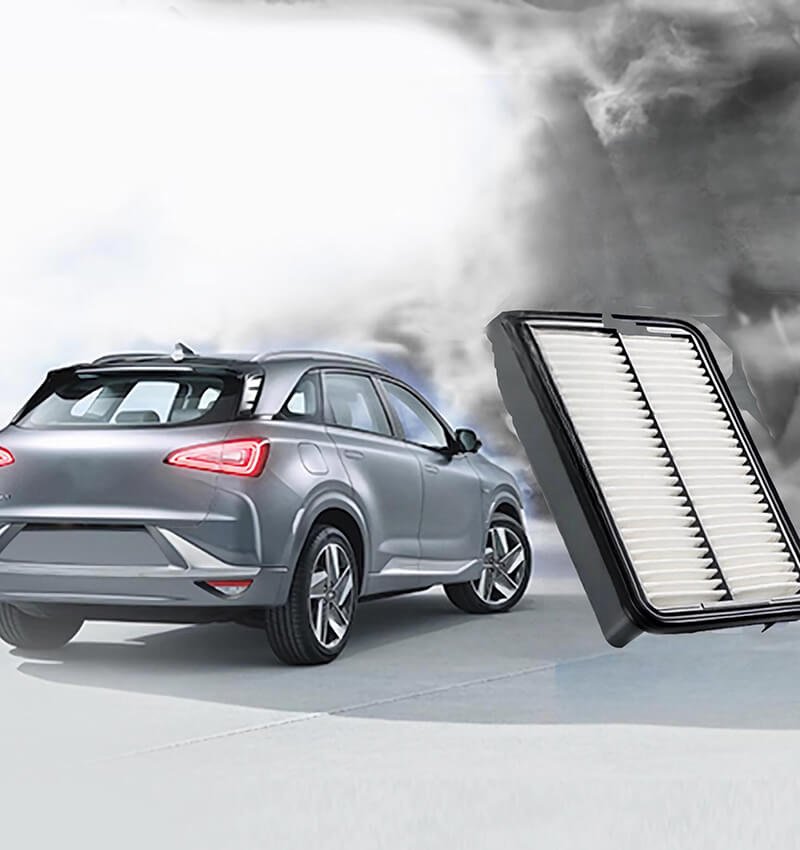
Conclusion
Air filter11 changes are simple—but they affect more than just air quality. They influence sound, airflow, and your peace of mind. Most noise issues come from poor fitment or low-quality filters. Runex Auto filters are designed to prevent these problems with precise construction, OEM match, and noise-stabilizing materials. So next time you hear a whistle or growl after a filter change, don’t blame the engine. Just check the filter—and make sure it says Runex.
-
Explore the advantages of high-quality air filters to understand how they can improve your vehicle's performance and reduce noise. ↩
-
Learn about the impact of air gaps on engine performance and how to prevent them for optimal vehicle efficiency. ↩
-
Understanding how thinner media affects airflow sound can help you choose the right filter for your vehicle's performance. ↩
-
Learn about pleat depth variation and its significant role in altering airflow sound, crucial for filter design. ↩
-
Explore how Runex filters enhance engine acoustics and performance, making them a top choice for car enthusiasts. ↩
-
Understanding this concept can help you choose the right filter for your vehicle's sound preferences. ↩
-
This resource will explain the impact of sealing on filter performance and sound, crucial for car enthusiasts. ↩
-
Exploring this topic will provide insights into how different materials influence engine sound, aiding in filter selection. ↩
-
Learn effective methods to detect and repair air leaks, ensuring optimal performance of your air filtration system. ↩
-
Explore the advantages of Runex filters, known for their superior sealing and compatibility, to enhance your air filtration system. ↩
-
Find the best quality OEM Auto Air Filter from Runex. ↩

